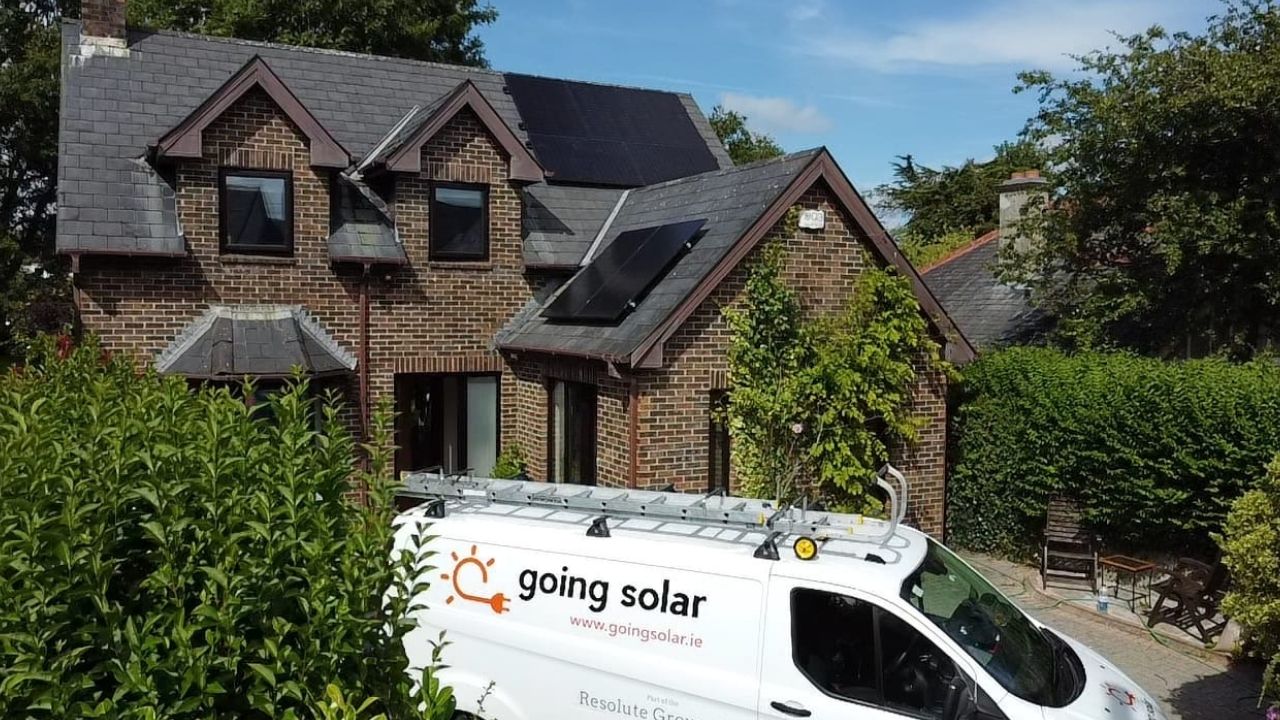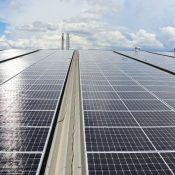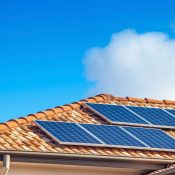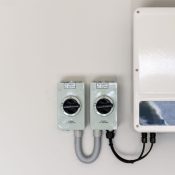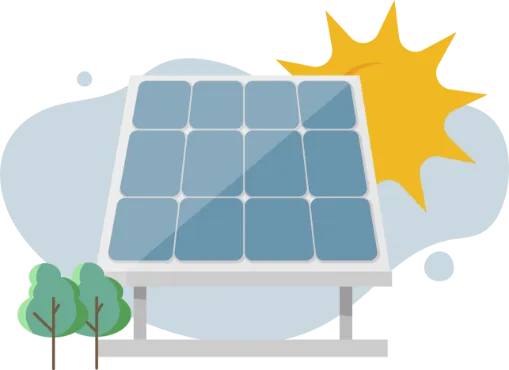What is the Cost of Solar Panels for a Four-Bedroom House?
Are you considering installing solar panels but unsure what is the cost of solar panels for a four-bedroom house? Solar panels are becoming increasingly popular in Ireland for their ability to cut energy bills and provide a reliable source of renewable energy.
Solar panels offer the advantage of generating your own electricity and being less dependent on the national grid. This can be particularly beneficial in larger households where energy use is higher, such as four-bedroom homes.
However, understanding the real cost is essential to planning your energy budget effectively. In this blog, we will explore the cost of solar panels for a four-bedroom house, the factors that influence pricing, and how to make the most of available grants and long-term savings.
What is the Cost of Solar Panels for a Four-Bedroom House?
If you’re living in a four-bedroom house and thinking about solar, you’re probably wondering how much it might cost and what kind of savings to expect. Below is a breakdown of typical costs, energy output, and long-term benefits for a standard solar panel setup.
1. Installation Cost
The average upfront cost for a 12-panel solar system on a four-bedroom house is around €7,100 – €8,000. This covers panels, inverter, labour, and related materials.
2. Energy Production
Such a system can generate about 4,500 kWh of electricity each year. That’s an estimated value of €2,269 based on average electricity prices.
3. Payback Period
With current energy costs and available grants, the system could pay for itself in roughly often around 5–8 years (varies by usage, tariff, and export payments). After that, your savings go straight into your pocket.
4. Environmental Impact
Installing this system can reduce your carbon footprint by up to can reduce household emissions meaningfully per year, making your home greener and more energy efficient.
5. Long-Term Value
Beyond energy savings, solar panels can add value to your home and protect you from rising electricity prices in the future. They’re a smart investment that pays off over time.
What Factors Affect the Cost of Solar Panels for a Four-Bedroom House?
The cost of installing solar panels for a four-bedroom home in Ireland is influenced by several important factors. Understanding these factors helps homeowners plan realistically and make informed decisions about system size, performance, and long-term value.
1. Size of the Solar PV System
The system size is the most significant cost driver. For a four-bedroom house, a 5–6 kWp system is often recommended, offering a balance between energy production and affordability. A larger array generates more electricity but also requires more panels and higher upfront investment. Choosing the right size based on your household’s energy needs is crucial to maximise efficiency and savings.
2. Quality of Solar Panels
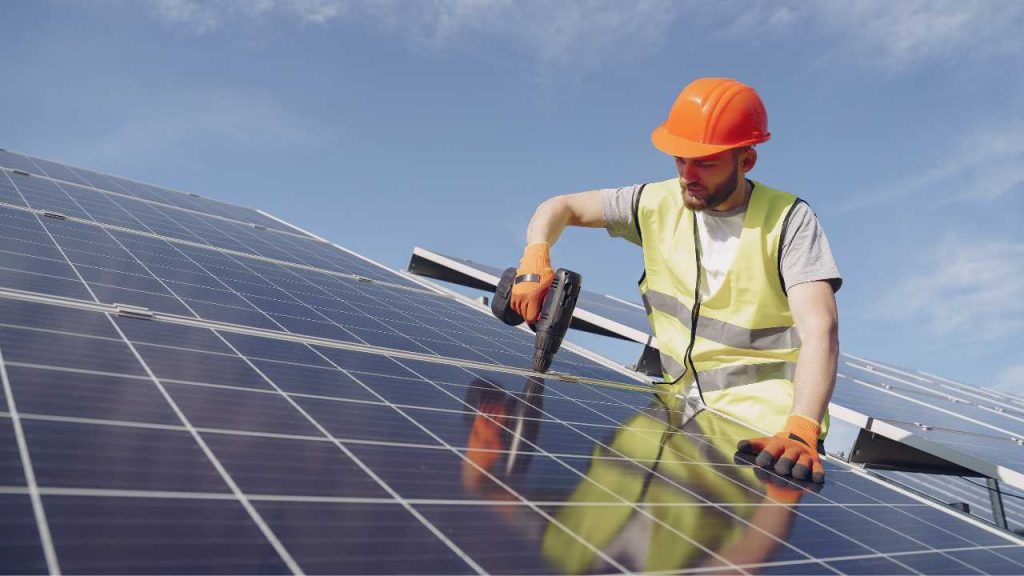
The type and quality of solar panels have a direct impact on cost. Premium monocrystalline panels deliver higher efficiency and degrade more slowly over time, ensuring better long-term returns. While less expensive panels may reduce initial costs, they often generate less electricity and may not last as long. High-performance panels provide greater energy security over 25 years or more.
3. Inverter Technology
The inverter is the heart of the system, converting solar energy into usable electricity. Advanced hybrid inverters are battery-ready, enabling seamless storage upgrades in the future. Although hybrid models cost more than standard inverters, they provide improved monitoring, greater efficiency, and adaptability for evolving energy needs. Investing in the right inverter enhances system performance and longevity.
4. Installation Complexity
Roof type, material, and orientation also affect overall costs. A simple south-facing roof makes installation straightforward and cost-effective. In contrast, roofs with slate tiles, steep angles, or shading issues often require additional labour and mounting equipment. These complexities can increase installation costs, but proper assessment ensures safe and efficient operation.
5. Grants and Incentives
One of the most effective ways to reduce solar panel costs is through government support. The SEAI grant currently provides up to €1,800 for residential solar systems, significantly lowering the upfront investment. Homeowners also benefit from export tariffs, where surplus electricity can be sold back to the grid. Combining grants and incentives ensures a shorter payback period and maximises financial returns.
What is the Energy Consumption of a Four-Bedroom House?
The average energy consumption of a four-bedroom house in Ireland typically ranges between 4,500 kWh and 5,500 kWh per year, depending on the number of occupants, appliances, and heating systems in use. Larger households often have higher energy needs due to multiple devices, frequent laundry cycles, and greater demand for heating and hot water.
High-consumption appliances such as electric showers, dishwashers, and tumble dryers contribute significantly to electricity usage in a family home. Seasonal variations also play a role, with winter months requiring more energy for heating and lighting compared to summer.
Understanding this baseline consumption is essential when planning a solar panel system. By matching solar output to household demand, homeowners can reduce reliance on the grid and achieve meaningful savings on electricity bills.
How to Maximise Savings & Reduce Environmental Footprint?
When investing in solar panels, the benefits extend further than reduced bills as they also help lower carbon emissions and create a more sustainable household. By making smart choices, homeowners can maximise savings and amplify their positive environmental impact.
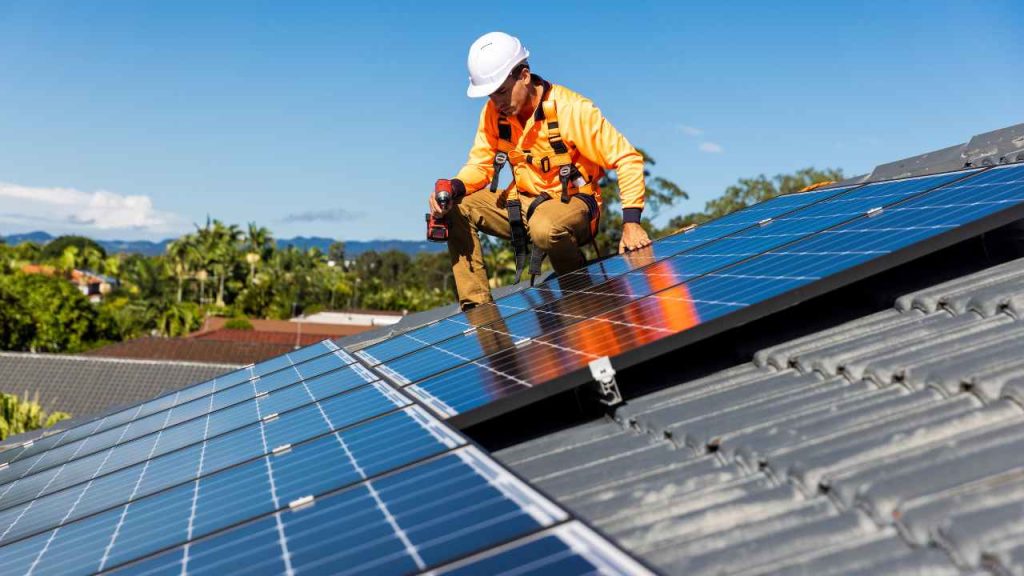
1. Optimise System Size
Selecting the right system size ensures that your panels generate enough electricity to cover most of your household’s needs without overspending on unnecessary capacity. A properly sized system balances cost with long-term efficiency.
2. Invest in Energy Storage
Adding a battery to your solar panel system allows you to store excess electricity for evening use. This reduces reliance on the grid, cuts bills further, and ensures energy security during peak demand periods.
3. Improve Home Efficiency
Pairing solar panels with energy-efficient appliances, LED lighting, and improved insulation enhances overall savings. By reducing wasted energy, households make the most of their solar investment and lower carbon emissions.
4. Take Advantage of Grants & Tariffs
Applying for SEAI grants and benefiting from export tariffs can significantly improve payback times. Grants reduce upfront costs, while tariffs provide income for excess electricity exported to the grid, boosting both financial and environmental returns.
Conclusion
The cost of solar panels for a four-bedroom house depends on factors such as system size, panel quality, and installation complexity. A typical 12-panel system can generate around 4,500 kWh annually, saving homeowners over €1,200 per year on electricity bills while reducing carbon emissions significantly. With SEAI grants and export tariffs available, solar panels provide a strong balance between affordability, sustainability, and long-term savings.
For professional solar panel installation and expert guidance, contact Going Solar. Start your journey towards energy independence and lower bills with a customised solution for your home. Reach out to Going Solar today for a consultation and discover how solar energy can benefit your household.
Planning a switch to solar energy?
Contact Going Solar now and Get Free Advice & Quote Within Minutes!
Frequently Asked Questions
Contact Going Solar Now!
Joe Brennan
Founder @ Going Solar
Joe Brennan, the founder of Going Solar, is dedicated to making solar power mainstream in Ireland and meet SEAI objectives. With a focus on affordability and sustainability, he is bringing renewable energy solutions to homes, reducing costs & environmental impact.
Recent Posts

